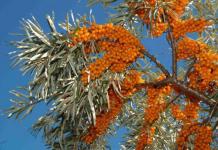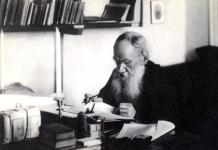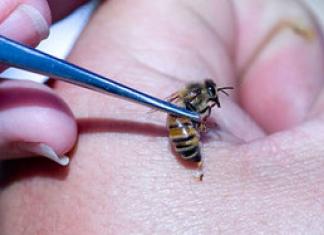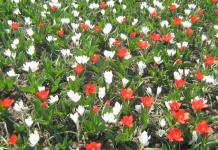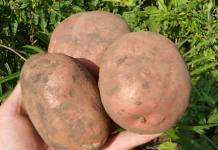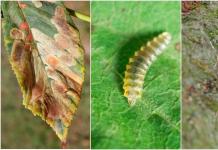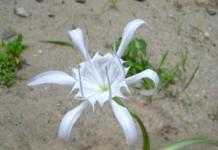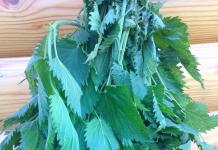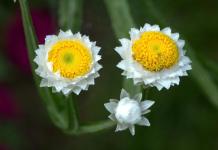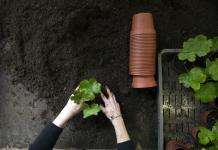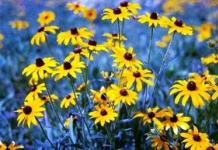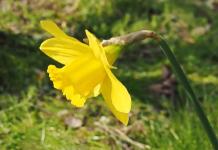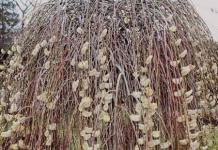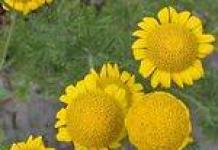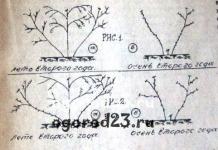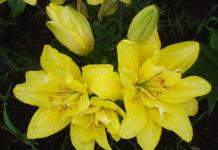PEASANT CHILDREN
(In shorthand)
I'm in the village again. I go hunting
I write my verses - life is easy.
Yesterday, tired of walking in the swamp,
I wandered into the barn and fell asleep deeply.
I woke up: into the wide crevices of the barn
The rays of the cheerful sun are looking.
The dove coos; flying over the roof,
Young rooks are screaming
Another bird is also flying -
I recognized the raven by the shadow;
Chu! some whisper ... but a string
Along the slit of attentive eyes!
All gray, brown, blue eyes
Mixed like flowers in a field.
There is so much peace, freedom and affection in them,
There is so much holy kindness in them!
Oh, lovely rogues! Who often saw them,
He, I believe, loves peasant children ...
I did mushroom raids with them:
Dug up the leaves, rummaged through the stumps,
I tried to spot a mushroom spot
And in the morning he could never find it.
"Look, Savosya, what a ring!"
We both bent down and grabbed at once ...
* * *
- Enough, Vanyusha! you walked a lot,
It's time to get to work, dear! -
But even labor will turn around first
To Vanyusha with his smart side.
He sees how his father fertilizes the field,
As it throws grain into the loose earth,
As the field then begins to turn green,
As an ear grows, pours grain ...
So, we have to wrap by the way
The other side is a medal.
Let the peasant child be free
Grows up without learning anything
But he will grow up, if God pleases,
And nothing prevents him from bending.
Suppose he knows forest paths,
Prances on horseback, is not afraid of water,
But the midges mercilessly eat it,
But he knows the works early ...
Once upon a time in the cold winter time
I went out of the forest; there was a bitter frost.
I look, it rises slowly up the hill
A horse carrying brushwood,
And, walking importantly, in a calm calm,
A little man leads the horse by the bridle
In big boots, in a sheepskin sheepskin coat,
In big mittens ... and he himself with a marigold!
- Hey, boy! - "Go by yourself!"
- Painfully you are formidable, as I can see!
Where do the firewood come from? - “From the forest, no doubt;
Father, do you hear, chops, and I take away. "
(A lumberjack's ax was heard in the forest.)
- Does your father have a big family? -
“The family is big, but two people
There are only peasants: my father and I ... "
- So that's it! And what is your name? - "Vlasom".
- Why are you a year old? - “The sixth passed ...
Well, dead! " - shouted the baby in a bass voice,
He pulled by the bridle and walked faster ...
Nikolai Alekseevich Nekrasov is one of the few classical poets who created works about the existence of ordinary people. One of these creations is the charming poem "Peasant Children", which says that one day a hunter came into a village shed and lost sleep because of fatigue. And the traveler is discovered by children living in a small village. They look at him with surprise and discuss loudly. The poet immediately depicts his childhood with the peasant children, and also imagines how they supported the adults. And although they worked willingly, the work also gave them unbearable torment, ranging from impotence in the face of the heat and severe frosts.
The poem teaches us to understand that, despite the fact that poor people worked to the point of exhaustion, this work brought them not only torment, but also joy. The main idea is a respectful attitude to the work of ordinary people, because they also have the opportunity to enjoy life, only they need to work a lot and for a long time.
Summary Peasant children of Nekrasov
Reading the initial lines of this striking poetic work, we find ourselves in a small shed where a tired hunter wandered in and lay down to rest. He fell fast asleep, as he had been hunting for a long time, and did not hear how several pairs of inquiring children's eyes were looking at him through the cracks, which in no way could understand whether the man was lying alive or lifeless. Finally he woke up, and immediately he heard the iridescent song of birds. He managed to distinguish between a crow and a rook. And suddenly the stranger's gaze came across tiny nimble eyes. These were kids who were looking at a stranger with great interest. They quietly talked among themselves, and cast their eyes first at the man's ammunition, then at his dog. When the children noticed that a stranger was watching them, some of them ran away. And late in the evening it was already known that a rich gentleman had arrived at their settlement.
Having settled in the village for the summer, the master enjoys the beautiful places and the time spent with the children. The author describes their life in various ways, which is filled with various games. And, of course, it is striking that all the activities of rural children are very different from the leisure of urban children.
We see how some little boy swims with pleasure in the river, another babysits his sister. A mischievous little girl rides a horse. At the same time, the guys help adults. So Vanya, tries his hand at harvesting bread, and then with a majestic look takes it home. They have no time to get sick and think about empty things. The days fly by for them instantly and happily. And they learn all the most informative from their elders. But Nekrasov also notes the other side of their fate. These children have no future. They play, work with pleasure, but none of them receive education, and, accordingly, will not become worthy and respected people in society.
In the poem, Nikolai Alekseevich inserted a bright moment, which describes the labor activity of children. Once in a cold winter, the poet, apparently hunting, meets a small child who helps his father carry firewood. It happens on such frosty days! And he is forced to help, since there are only two men in their family. Then Nekrasov again returns us to the beginning of the poem. The rested hunter began to show the children what a smart dog he has. But then a thunderstorm began, and the children fled to their homes, and the narrator went on to hunt.
Picture or drawing Peasant children
Other retellings and reviews for the reader's diary
- Summary of the Mozart opera The Marriage of Figaro
The story begins with the preparation for the wedding in the castle of Count Almaviva. During it, everyone is having fun, talking, discussing pressing matters and problems.
- Executive summary Sholokhov Prodcomissar
The earth is round, you never know where you will find it, and where you will lose it. Bodyagin is a man who has experienced a lot in his life. He was still a boy, a teenager, when he was expelled from home by his father. Everything happened then swiftly
- Summary of Sholokhov Melon
Life would become simply unacceptable if everyone decided what to do and how to act. If people decided to do whatever they want and what they decide is right, it would be impossible to live. After all, everyone is right in their own way, regardless of the situation.
- Summary Bondarev Battalions ask for fire
The story of Bondarev shows the whole horror of war, which is not only in battles, hospitals, hunger ... The difficulty of choosing is also terrible, when someone must be sacrificed for the sake of the lives of others. The title suggests that this is the most important phrase.
- Abstract Gogol Mirgorod
"Mirgorod" is a continuation of the collection "Evenings on a Farm ...". This book served as a new period in the work of the author. This work of Gogol consists of four parts, four stories, each of them is not similar to the other
Enough, Vanyusha! you walked a lot, It's time to work, dear! - But even work will first turn to Vanyusha with its elegant side. He sees how the father fertilizes the field, How he throws grain into the loose earth, How the field then begins to turn green, How the ear grows, pours the grain ... So, by the way, we have to wrap a medal on the other side. Suppose a peasant child grows freely without learning anything, But he will grow up if God pleases, And nothing prevents him from bending. Suppose he knows forest paths, Prances on horseback, is not afraid of water, But the midges mercilessly eat him, But he knows the work early ... * * * Once, in the cold winter time, I left the forest; there was a bitter frost. I look, slowly rising up the mountain The horse, carrying a cart of brushwood, And, walking importantly, in decorous calm, The horse is led by the bridle of a peasant In big boots, in a sheepskin coat, In big mittens ...
Nekrasov, "peasant children": analysis and summary of the work
Enough, Vanyusha! you walked a lot, It's time to work, dear! - But even work will first turn to Vanyusha's elegant side. He sees how his father fertilizes the field, How he throws grain into the loose earth, How the field then begins to turn green, How an ear grows, pours grain ...
So, we are obliged to wrap by the way the other side of the medal. Suppose a peasant child grows freely without learning anything, But he will grow up if God pleases, And nothing prevents him from bending.
Attention
Suppose he knows forest paths, Prances on horseback, is not afraid of water, But the midges mercilessly eat him, But he knows the work early ... * * * Once, in the cold winter time, I left the forest; there was a bitter frost. I look, slowly rising up the mountain Horse, carrying a cart of brushwood, And, walking importantly, in decorous calm, The horse is led by the bridle of a peasant In big boots, in a sheepskin coat, In big mittens ...
Summary of Nekrasov peasant children for a reader's diary
However, it would be a pity to sow envy in a noble child. So, we have to wrap a medal on the other side. Suppose a peasant child grows freely, not learning anything, But he will grow up, if God pleases, And nothing prevents him from bending. Suppose he knows forest paths, Prances on horseback, is not afraid of water, But the midges mercilessly eat him, But he knows the works early ... Once, in the cold winter season, I left the forest; there was a severe frost. I look, slowly climbing up the hill A horse, carrying a wagon of brushwood. And marching importantly, in decorous calm, The horse is led by the bridle of a peasant In large boots, in a sheepskin fur coat, In large mittens ...
Summary of peasant children, Nekrasov read
- Nekrasov
- Peasant children
Nikolai Alekseevich Nekrasov is one of the few classical poets who created works about the existence of ordinary people. One of such creations is the charming poem "Peasant Children", which says that one day a hunter came into a village shed, who lost sleep because of fatigue.
And the traveler is discovered by children living in a small village. They look at him with surprise and discuss loudly.
Important
The poet immediately depicts his childhood with the peasant children, and also imagines how they supported the adults. And although they worked willingly, the work also gave them unbearable torment, ranging from impotence in the face of heat and severe frosts.
"Peasant children"
They are interested in legends and stories, they do not even shy away from the work of the carpenter, which is mentioned in the poem. Despite all the problems, they are happy in their corner of paradise.
The author says that there is nothing to regret and hate such children, they need to envy, because the children of the rich do not have such color and freedom. Introduction to the poem through the plot Nekrasov's poem "Peasant Children" begins with a description of several previous days.
The narrator was hunting and, tired, wandered into the barn, where he fell asleep. He was awakened by the sun, which made its way through the cracks. He heard the voices of birds and recognized pigeons and rooks.
I recognized the crow by the shadow. Eyes of different colors looked at him through the gap, in which there was peace, affection and kindness. He realized that these were the views of children. The poet is sure that only children can have such eyes.
They quietly among themselves commented on what they saw. One looked at the beard and long legs of the narrator, the other at the large dog.
Great guy! " - "Go by yourself!" - "It's painfully you are formidable, as I can see! Where are the firewood from?" - "From the forest, of course; Father, do you hear, chopping, and I'm taking it away." (In the forest, a woodcutter's ax was heard.) then: my father and I ... "-" So there it is! And what is your name? "-" Vlasom "-" Why are you a year old? " - "The sixth passed ... Well, dead!" - shouted the baby in a bass voice, Pulled by the bridle and walked faster. The sun was shining at this picture so, The child was so hilariously small, As if all this was cardboard, As if I got into a children's theater! But the boy was a living boy, real, And logs, and brushwood, and a piebald horse, And snow lying to the windows of the village, And a cold fire of the winter sun - Everything.
Summary peasant children n.a nekasova
include ("body.tpl"); ? I'm in the village again. I go hunting, I write my verses - life is easy. Yesterday, tired of walking through the swamp, I wandered into the barn and fell deeply asleep. flying over the roof, Young rooks are screaming, Another kind of bird is also flying - By the shadow I recognized the crow just; Chu! some whisper ... but a string Along the slit of attentive eyes! All gray, brown, blue eyes -Mixed like flowers in a field. There is so much peace, freedom and affection in them, There is so much holy kindness in them! I love the expression of a child's eyes, His I am I always recognize. I froze: tenderness touched my soul ... Chu! whisper again! First Gool with Beard! The second A sir, they said! .. The third Be quiet, you devils! The second bar has no beard - a mustache.
FIRST And the legs are long, like poles.
Nekrasov, "; peasant children" ;: analysis and summary of the work
I write my verses - life is easy. Yesterday, tired of walking through the swamp, I wandered into the barn and fell asleep deeply. I woke up: in the wide slits of the barn the rays of the cheerful sun are looking.
The dove coos; flying over the roof, Young rooks are screaming, Another kind of bird is also flying - I recognized the crow just by the shadow; Chu! some whisper ... but a string Along the slit of attentive eyes! All gray, brown, blue eyes Mixed, like flowers in a field. They have so much peace, freedom and affection, They have so much holy kindness! Oh, lovely rogues! Who often saw them, He, I believe, loves peasant children ... I did mushroom raids with them: I dug up leaves, rummaged through stumps, I tried to notice a mushroom spot, And in the morning I could not find it. “Look, Savosya, what a ring!” We both bent down, but at once and grab ...
Nekrasov N.A. - peasant children
The poem teaches us to understand that, despite the fact that poor people worked to the point of exhaustion, this work brought them not only torment, but also joy. The main idea is a respectful attitude to the work of ordinary people, because they also have the opportunity to enjoy life, only they need to work a lot and for a long time.
Info
Summary Peasant children of Nekrasov Reading the initial lines of this amazing poetic work, we find ourselves in a small shed where a tired hunter wandered in and lay down to rest. He fell fast asleep, as he had been hunting for a long time, and did not hear how several pairs of inquiring children's eyes were looking at him through the cracks, which in no way could understand whether the man was lying alive or lifeless.
Finally he woke up, and immediately he heard the iridescent song of birds. He managed to distinguish between a crow and a rook. And suddenly the stranger's gaze came across tiny nimble eyes.
Summary of the poem peasant children of Nekrasov
He was interested in learning new worlds. Therefore, he was probably one of the first to introduce the image of a common man into high poetry. It was Nekrasov who noticed the beauty in rural images. Later other writers followed suit. A movement of followers was formed who wrote like Nekrasov. "Peasant Children" (which can be analyzed based on the historical period in which the poem was written) stands out from all the poet's work. In other works, there is more grief. And these children are full of happiness, although the author does not cherish high hopes regarding their bright future. The little ones have no time to get sick and think about the unnecessary. Their life is full of colorful nature, in which they were lucky enough to live.
They are hardworking and simply wise. Every day is an adventure. At the same time, children bit by bit absorb science from their elders.
Summary of Nekrasov's story peasant children
The writer calls on to grow in freedom, because later it will help to love your labor bread. Completion of the storyline Further, the author breaks away from his memories and continues the plot from which he began the poem.
The children became more courageous, and he shouted to a dog named Fingal that thieves were approaching. We need to hide belongings, Nekrasov told the dog. The peasant children were delighted with Fingal's skills.
A dog with a serious muzzle hid all the good in the hay. She especially tried over the game, then lay down at the feet of the owner and growled.
The spectators fled. Barefoot children rushed to their homes. Nekrasov stayed in the barn and waited out the rain, and then went with Fingal to look for snipe. The image of nature in a poem It is impossible not to praise the wealth and beauty of Russian nature.
They are interested in legends and stories, they do not even shy away from the work of the carpenter, which is mentioned in the poem. Despite all the problems, they are happy in their corner of paradise. The author says that there is nothing to regret and hate such children, they need to envy, because the children of the rich do not have such color and freedom. Introduction to the poem through the plot Nekrasov's poem "Peasant Children" begins with a description of several previous days.
The narrator was hunting and, tired, wandered into the barn, where he fell asleep. He was awakened by the sun, which made its way through the cracks. He heard the voices of birds and recognized pigeons and rooks.
I recognized the crow by the shadow. Eyes of different colors looked at him through the gap, in which there was peace, affection and kindness. He understood that these were the views of children. The poet is sure that only children can have such eyes. They quietly among themselves commented on what they saw. One looked at the beard and long legs of the narrator, the other at the large dog.
Nikolai Alekseevich Nekrasov - a new trend in the history of Russian literature. He was the first to introduce the theme of the common people and filled rhymes with colloquial turns. The way of life of commoners appeared, so a new style was born. Nikolai Alekseevich became a pioneer in the mainstream of a combination of lyrics and satire. He dared to change its very content. "Peasant Children" by Nekrasov was written in 1861 in Greshnevo. The shed in which the narrator slept was most likely located in Shoda, under the house of Gabriel Zakharov (children recognize him in the work). At the time of writing, the poet wore a beard, which was a rarity for nobles, so the children questioned his origin.
The rich image of peasant children
The future writer was born into a simple, poor, but respected family. As a child, he often played with his peers. The guys did not perceive him as a superior and a master. Nekrasov never gave up a simple life. He was interested in learning new worlds. Therefore, he was probably one of the first to introduce the image of a common man into high poetry. It was Nekrasov who noticed the beauty in rural images. Later other writers followed suit.
A movement of followers was formed who wrote like Nekrasov. "Peasant Children" (which can be analyzed based on the historical period in which the poem was written) stands out from all the poet's work. In other works, there is more grief. And these children are full of happiness, although the author does not cherish high hopes regarding their bright future. Babies have no time to get sick and think about unnecessary things. Their life is full of the colorful nature in which they are lucky to live. They are hardworking and simply wise. Every day is an adventure. At the same time, children bit by bit absorb science from their elders. They are interested in legends and stories, they do not even shy away from the work of the carpenter, which is mentioned in the poem.
Despite all the problems, they are happy in their corner of paradise. The author says that there is nothing to regret and hate such children, they need to envy, because the children of the rich do not have such color and freedom.
An introduction to a poem through a plot
Nekrasov's poem "Peasant Children" begins with a description of several previous days. The narrator was hunting and, tired, wandered into the barn, where he fell asleep. He was awakened by the sun, which made its way through the cracks. He heard the voices of birds and recognized pigeons and rooks. I recognized the crow by the shadow. Eyes of different colors looked at him through the gap, in which there was peace, affection and kindness. He understood that these were the views of children.
The poet is sure that only children can have such eyes. They quietly among themselves commented on what they saw. One looked at the beard and long legs of the narrator, the other at the large dog. When the man, probably Nekrasov himself, opened his eyes, the children rushed away like sparrows. As soon as the poet lowered his eyelids, they appeared again. Then they concluded that he was not a master, because he was not lying on the stove and was driving from the swamp.
Reflections of the author
Further, Nekrasov breaks away from the storyline and indulges in reflections. He confesses his love for children and says that even those who perceive them as "a low kind of people" still once envied them. There is more poetry in the life of the poor, says Nekrasov. Peasant children made mushroom raids with him, put snakes on the railing of the bridge and waited for the reactions of passers-by.

People were resting under the old elms, the children surrounded them and listened to stories. This is how we learned the legend about Valil. Having always lived a rich man, he somehow angered God. And since then he had neither harvest nor honey, only they grew well. On another occasion, a working man laid out tools and showed interested children how to saw and chop. The exhausted man fell asleep, and the guys let's saw and plan. Then it was impossible to remove the dust for a day. If we talk about the stories that the poem "Peasant Children" describes, Nekrasov, as it were, conveys his own impressions and memories.
Everyday life of peasant children
Then the writer leads the reader to the river. A stormy life is in full swing there. Who bathes, who shares stories. One boy catches leeches “on the lava, where the womb beats the linen,” another looks after his younger sister. One girl makes a wreath. The other attracts the horse and rides it. Life is full of joy.

His father called Vanyusha to work, and the guy gladly helps him in the field with bread. When the harvest is harvested, he is the first to taste the new bread. And then he sits astride a cart with straw and feels like a king. The other side of the coin is that children do not have the right to choose their future, and this is what Nekrasov is concerned about. Peasant children do not study and grow up happily, although they have to work.
The most striking character of the poem
The next part of the poem is often mistakenly considered a separate work.
The narrator "in the cold winter season" sees a cart with brushwood, the horse is being led by a little man. He wears a big hat and huge boots. It turned out to be a child. The author greeted, to which the boy replied that he should pass. Nekrasov asks what he is doing here, the child replies that he carries firewood, which his father chops. The boy helps him, because there are only two men in their family, the father and him. Therefore, it all looks like a theater, but the boy is real.

Such a Russian spirit in the poem that Nekrasov wrote. "Peasant children", an analysis of their way of life shows the whole situation in Russia at that time. The writer calls on to grow in freedom, because later it will help to love your labor bread.
Completion of the storyline
Further, the author breaks away from the memories and continues the plot with which he began the poem. The children became more courageous, and he shouted to a dog named Fingal that thieves were approaching. We need to hide belongings, Nekrasov told the dog. The peasant children were delighted with Fingal's skills. A dog with a serious muzzle hid all the good in the hay. She especially tried over the game, then lay down at the feet of the owner and growled. Then the children began to give commands to the dog themselves.
The narrator enjoyed the painting. It got dark, a storm approached. Thunder rumbled. The rain fell. The spectators fled. Barefoot children rushed to their homes. Nekrasov stayed in the barn and waited out the rain, and then went with Fingal to look for snipe.
The image of nature in a poem
It is impossible not to praise the wealth and beauty of Russian nature. Therefore, along with the theme of love for children, Nekrasov's work "Peasant Children" glorifies the delights of life outside the gray walls of the city.

From the very first lines, the author drowns in the cooing of pigeons and the chirping of birds. Then he compares the color of the children's eyes to the flowers in the field. The image of the earth haunts the poet in the forest as he gathers mushrooms. From the forest, he leads the reader to the river, where the children bathe, which makes the water seem to laugh and howl. Their life is inseparable from nature. Children weave wreaths of pale yellow flowers, their lips are black with blueberries, which have set them sore, they meet a wolf, feed a hedgehog.
The role of bread in the poem is important. Through the eyes of one of the boys, the narrator conveys all the sanctity of growing grain. He describes the whole process from throwing a seed into the ground to baking bread in a mill. Nekrasov's poem "Peasant Children" calls for eternal love of the field, which gives strength and labor bread.
The presence of nature adds melody to the poem.
Hard life of Nekrasov children
The fate of peasant children is firmly tied to labor on the ground. The author himself says that they learn the works early. So, Nikolai Alekseevich cites the example of a little boy who matured early. A six-year-old boy works in the forest with his father and does not even think about complaining about his life.

Respect for work is instilled from childhood. Depending on how their parents are respectful of the field, children imitate them.
Coverage of the educational issue
In addition, the problem of education arises in the poem, which Nekrasov raises. Peasant children are deprived of the opportunity to study. They don't know books. And the narrator is worried about their future, because he knows that only God knows whether the child will grow up or die.

But next to endless work, children do not lose their thirst for life. They have not forgotten how to enjoy the little things that come across on their way. Their everyday life is full of bright, warm emotions.
The poem is an ode to simple children. After its publication in 1861, the entire rich world learned that peasant children are wonderful. Nekrasov elevated the simplicity of being. He showed that in all corners of the country there are people who, despite their low social status, are distinguished by humanity, decency and other benefactors, which have already begun to be forgotten in large cities. The piece made a splash. And its relevance remains acute to this day.




